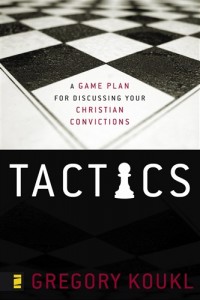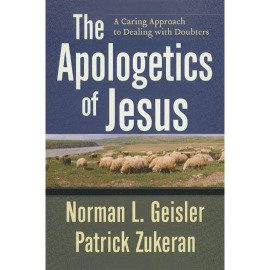Acts 17 provides one of the best examples of Paul engaging in apologetics in the New Testament. Rick Wade shows how Paul finds a point of contact with people to get a hearing.
The Apologist Paul
When we think of a biblical basis for apologetics, we typically think of Peter’s brief comments about defending the faith in 1 Pet. 3:15. We don’t typically think of Paul as an apologist. But in his letter to the church at Philippi, Paul said that they were “partakers with [him] in the defense and confirmation of the faith” (1:7; see also v.16). Apologetics was a significant aspect of Paul’s ministry.
An event that has received a great amount of attention in the study of Paul’s ministry is his address to the Areopagus in Athens, recorded in Acts 17: 16-34. That address will be my topic in this article. Maybe we can be encouraged by Paul’s example to speak out for Christ the way he did.
Athens was a still a significant city in Paul’s day. Although not so much a major political power, it retained its prestige for its cultural and intellectual achievements.{1} What we see today as the art treasures of the ancient world, however, Paul saw as images of gods and places for their worship. And there were a lot of them.
Being provoked by this in his spirit, Paul began telling people about Jesus. He made his way to the synagogue as he had done in various cities before.{2} There he bore witness to Jews and to God-fearing Gentiles.
He also went to the Agora—the marketplace—to talk with the citizens of Athens.{3} Among them were Epicurean and Stoic philosophers. After hearing him for a bit, the philosophers started calling Paul a “babbler,” a term of derision that meant literally “seed picker.” F. F. Bruce wrote that “[this word] was used of one who picked up scraps of learning here and there and purveyed them where he could.”{4}
Peddlers of strange new religious beliefs were fairly common in those days. But this was a risky thing to do. It was unlawful to teach the worship of gods that hadn’t been officially authorized.{5} Not long before this event, Paul was dragged into the marketplace in Philippi for “advocating customs unlawful for . . . Romans to accept or practice” (Acts 16:19-21). Eventually the people of Athens took Paul to the Areopagus, a powerful court which had authority in matters of religion and philosophy.{6} They wanted to know about these strange new ideas he was presenting.
Paul had the opportunity to tell the highest religious and philosophical body in Athens about the true God.
Greek Religion
As Paul looked around the city of Athens, his spirit was provoked within him. The people of Athens had surrounded themselves with idols that obscured the reality of the one true God.
Other historical writings affirm the prominence of religion in Athens. For example, a second century writer named Pausanius claimed that “the Athenians are far more devoted to religion than other men.”{7} His description of Athens names statue after statue, temple after temple. There were statues of gods everywhere, even on the mountains. There were temples built to Athena, Poseidon, Hephaestus, Zeus, Artemis, Ares, and more.
Paul spoke of the altar to the unknown god (Acts 17:23).There were quite a few such altars in those days. The late New Testament scholar, Bertil Gärtner, wrote that these altars were erected “either because an unknown god was considered the author of tribulations or good fortune, or because men feared to pass over some deity.”{8}
Greco-Roman religion was mainly about myth and ritual. Myths were the religious explanations of life and the world, and rituals were reenactments of them. Religion was mostly about appeasing the gods with the proper sacrifices to gain their favor and avoid their wrath.
Although morality wasn’t closely associated with religion, that isn’t to say that the way one lived was irrelevant.{9} As described in Virgil’s Aeneid, the souls of the dead were led by the god Hermes to the depths of the earth to await the decision about their eternal place. The guilty were sent to “dark Tartarus.” The pious went to the Elysian Fields.{10} In later years, the place of the blessed souls was said to be in the celestial realm. The afterlife, however, was still one of a shadowy existence.
There was no sacred/profane distinction in the Greco-Roman world; religion was not only a part of everyday life, it was integral to all the rest. Because of that, Christianity was not just a threat to religious belief; it threatened to upset all of culture. This is why Paul ran into such harsh opposition not only in Athens but also in Lystra and Philippi and Ephesus.
We live in a pluralistic society today. So did the apostles. But this did not stop the spread of the gospel. As we see at the end of Acts 17, some people did abandon their pluralism for faith in the one true God.
Epicureanism
When Paul went to the Agora in Athens to tell people about Jesus, he encountered some Epicurean and Stoic philosophers.
Epicureanism and Stoicism had “an influence that eclipsed that of all rival [philosophical] schools.”{11} The late British scholar Christopher Stead wrote that they “offered a practical policy for ordering one’s life which could appeal to the ordinary man. It has been argued that this was especially needed in the disorientation caused by the decline of the Greek city-states in the face of Alexander’s empire.”{12}
The school of Epicureanism was founded by Epicurus in the fourth century BC. His primary goal was to help people find happiness and peace of mind. He taught that a happy life is one in which pleasure predominates. These pleasures shouldn’t, however, cause any harm or discomfort. They aren’t found in a life of debauchery. Drinking and revelry just bring pain and confusion.{13} Pleasure was to be found in living a peaceful life in the company of like-minded friends. The intellectual pleasures of contemplation were the highest, because they could be experienced even if the body suffered.
There was more to Epicureanism than simply a lifestyle, however. Epicureans held two basic beliefs which stand in stark contrast to the message Paul preached to the Areopagus. These beliefs were thought to provide the basis for a tranquil life.
First, although Epicureans believed in the existence of the gods, they believed the gods had no interest in the affairs of people. Epicurus taught that the gods were very much like the Epicureans; they were examples of the ideal tranquil life. Although Epicureans might participate in religious ceremonies and “honour the gods for their excellence,”{14} they didn’t seek the gods’ favor through sacrifice.
A second key belief was the denial of the afterlife. Epicurus taught that after death comes extinction. According to their cosmogony, the world was created when atoms, falling through space, began to collide and form bodies. Like the heavenly bodies, we also are merely material beings. When we die, our material bodies decay and we no longer exist.{15} Thus, there was no fear of judgment in an afterlife.
Stoicism
As Paul mingled with the people in the Athenian Agora, he spoke not only with Epicureans, but with Stoics as well.
Stoicism was a school of philosophy founded by Zeno of Cyprus who lived from 335 to 263 BC. During a time of political instability, Stoicism “provided a means for maintaining tranquility amid the struggles of life.”{16} As with Epicurus, freedom from fear was a motivating force in Zeno’s thought.{17}
What did the Stoics believe that released them from fear? Stoicism changed over the centuries, but this is a good general description.
While the Epicureans believed the gods didn’t get involved in the affairs of people on earth, Stoics denied the existence of personal gods altogether.
Stoics believed the universe began with fire that differentiated itself into the other basic elements of water, air, and earth. The universe was composed purely of matter. The coarser matter made up the physical bodies we see. The finer matter was defused throughout everything and held everything together. This they called logos (reason) or sometimes breath or spirit or even fire. The idea of logos meant there was a rational principle operating in the universe.
Because the universe was thought to be ordered by an inbuilt principle and not by a mind, Stoics were deterministic. This raises a question, though. If everything was determined, what would that mean for ethics? Virtue was of supreme importance for Stoics. How could one choose the good if one’s actions are determined? One answer given was this: while people had the freedom to choose, the universe would do what it was determined to do. But if one wanted to live well, one had to live rationally in keeping with the rational order of the universe. To do otherwise was to make oneself miserable.
Some Stoics believed that the universe would one day erupt in a great fire from which would come another universe. Others thought the universe was eternal. Some believed that in future universes, people would repeat their lives over and over. Others believed that death was the end of a person’s existence. In either case, there was no immortality as we understand it.
Thus, Stoics sought peace in their troubled times by denying the existence of meddlesome gods and an afterlife that would bring judgment.
Paul’s Speech
When Paul was allowed to speak before the Areopagus, he made a strategic move. By pointing to the altar to the unknown god, and later referring to the comments of the Greeks’ own poets, he averted the charge of introducing new gods. At least on the surface!
Having brought their admitted ignorance to light, Paul told them about the true God. His declaration that a personal God made the heavens and the earth was a direct challenge to the Epicureans and Stoics. His announcement that God didn’t live in temples or need the service of people was a challenge to the practices of the religious Greeks.
Paul told them that God wasn’t far off and unknown. The phrase “in him we live, and move, and have our being,” which refers to Zeus, likely comes from Epimenides of Crete. The line, “we are his offspring,” is found in a poem by Aratus.{18} Paul wasn’t equating Zeus with God, but was telling them which God they were really near to.
Then Paul delivered a charge to the people. God was overlooking their time of ignorance and calling them to repent.{19} This was more than simply a call to a virtuous life as with the philosophers or a call to perform the required sacrifices to the gods. This repentance was necessary, Paul said, for God has set a time to judge the world through His appointed man, and that judgment is assured by the raising of that man from the dead. (2:26)
This was too much for the people of Athens for a few reasons. First, Paul presented an entirely different cosmology. History, he told them, was bound by the creation of God on one end and the judgment of God on the other. Second, there was no room for a historical resurrection in Greek thought. The dyings and risings of their gods didn’t occur in space-time history.
By attacking the Greeks’ religion, Paul attacked the foundations of their whole cultural structure. New Testament scholar Kavin Rowe writes that, because religion was so interwoven with the rest of life, Paul’s visit to Athens –and to Lystra, Philippi, and Ephesus as well—“[displays] . . . the collision between two different ways of life.”{20}
The gospel we proclaim doesn’t just lay claim to our religious beliefs. It affects our entire lives. Paul knew what was central to the Greeks, what was the core issue that had to be addressed. Likewise, we need to know the fundamental worldview beliefs of our neighbors and how to address them with an approach that will get us a hearing.
Notes
1. F.F. Bruce, The Book of Acts, The New International Commentary on the New Testament (Grand Rapids: Eerdmans, 1971), 349.
2. Acts 13 gives a good picture of how Paul presented the gospel to his fellow Jews.
3. The Web site Ancient Athens 3D gives an interesting visual representation of the Agora, the marketplace, as it looked in Paul’s day. ancientathens3d.com/romagoralEn.htm.
4. Bruce, Acts, 351, n. 20.
5. Charles Carter and Ralph Earle, The Acts of the Apostles (Grand Rapids: Zondervan, 1978), 256, and Richard N. Longenecker, “The Acts of the Apostle,” Expositor’s Bible Commentary, Frank E. Gaebelein, gen. ed., J.D. Douglas, assoc. ed., (Grand Rapids: Zondervan, 1976-1992), CD.
6. See C. Kavin Rowe, World Upside Down: Reading Acts in the Graeco-Roman Age (New York: Oxford, 2009), 31.
7. Pausanius, Description of Greece, “Attica”, 1:24:1, written c. AD 160, www.fordham.edu/halsall/ancient/pausanias-bk1.html
8. Bertil Edgar Gärtner, The Areopagus Speech and Natural Revelation, Acta Seminarii Neotestamentici Upsaliensis, vol. 21 (Uppsala, 1955), 245, quoted in Everett Harrison, Acts: The Expanding Church (Chicago: Moody Press, 1978), 270. See also the discussion in Carter and Earle, Acts, 259.
9. This may seem inconsistent. But one must keep in mind that religion wasn’t one aspect of life that was clearly distinguishable from the rest. Life was all of a piece in the ancient world.
10. Everett Ferguson, Backgrounds of Early Christianity, 2nd ed., (Grand Rapids: Eerdmans, 1993), 233.
11. Christopher Stead, Philosophy in Christian Antiquity (New York: Cambridge, 1998), 40.
12. Ibid.
13. Diogenes Laertius, Lives of the Philosophers, quoted in Frederick Copleston, A History of Philosophy, bk. 1, vol. 1 (Garden City, NY: Image Books, 1985), 407-08.
14. Copleston, History, 406.
15. Stead, Philosophy in Christian Antiquity, 42.
16. Kelly James Clark, Richard Lints, and James K.A. Smith, 101 Key Terms in Philosophy and Their Importance for Theology (Louisville: Westminster John Knox Press, 2004), s.v. “Stoicism.”
17. Ferguson, Backgrounds of Early Christianity, 333.
18. Carter and Earle note that this line also appears in Cleanthes’ Hymn to Zeus. I credited Aratus with the line because F. F. Bruce notes that Kirsopp Lake “points out that the immediately following lines of Aratus’s poem have ‘a strong general resemblance to v. 26 of the Areopagitica’” (Bruce, Acts, 360, n. 50). It could be that Aratus got it from Cleanthes (cf. Rowe, World Upside Down, 37-38).
19. Some Christians hold that the Greek word for “repent,” metanoeō, means merely to change one’s mind. This sometimes comes up in Lordship salvation debates. The basic meanings of the two parts of the word aren’t sufficient for understanding its use. Metanoeō, in the New Testament, denotes conversion. “The predominantly intellectual understanding of metanoeō as change of mind plays very little part in the NT. Rather the decision by the whole man to turn round is stressed. It is clear that we are concerned neither with a purely outward turning nor with a merely intellectual change of ideas.” Colin Brown, ed., The New International Dictionary of New Testament Theology, vol. 1 (Grand Rapids: Regency Reference Library, 1975), s.v., “Conversion, 358).
20. Rowe, World Upside Down, 50, 51.
© 2010 Probe Ministries


 Actually, our invitation to Romania came about during our first trip to Hungary in 2008. Deanne and I became friends with students Alin and Iuliana Muntean and their 4–year–old daughter, Ruthie. Alin and Iuliana were mature beyond their years, serious students, and active evangelists in the various WOL outreaches. When we let them know that we were returning to Hungary this year, they invited us to Romania to teach as well! WOL Bible Training and Discipleship Center is only two years old but already has fourteen students. Needless to say, we were thrilled to accept their invitation.
Actually, our invitation to Romania came about during our first trip to Hungary in 2008. Deanne and I became friends with students Alin and Iuliana Muntean and their 4–year–old daughter, Ruthie. Alin and Iuliana were mature beyond their years, serious students, and active evangelists in the various WOL outreaches. When we let them know that we were returning to Hungary this year, they invited us to Romania to teach as well! WOL Bible Training and Discipleship Center is only two years old but already has fourteen students. Needless to say, we were thrilled to accept their invitation. Our four–day stay in Romania was a busy one. My class was made up of seven second–year students. I taught five hours a day on Apologetics and Worldviews as well as a one hour chapel that challenged our very capable translator, Wanna. She had an amazing ability to translate difficult abstract ideas from English into Romanian. Her skills became evident as the students asked pertinent questions that demonstrated their grasp of the topics. They were eager to receive the apologetics information on the reliability of the Bible, the deity of Christ, answers to the problem of evil and other topics. I also spent one evening helping them to think through a response to the local Jehovah’s Witnesses whom most had encountered. It was a lively discussion particularly when they realized they now have biblical answers to those false claims. Deanne sat in on the classes to interact with the students too. She prayed with the girls during a devotion and is continuing friendships with them via email.
Our four–day stay in Romania was a busy one. My class was made up of seven second–year students. I taught five hours a day on Apologetics and Worldviews as well as a one hour chapel that challenged our very capable translator, Wanna. She had an amazing ability to translate difficult abstract ideas from English into Romanian. Her skills became evident as the students asked pertinent questions that demonstrated their grasp of the topics. They were eager to receive the apologetics information on the reliability of the Bible, the deity of Christ, answers to the problem of evil and other topics. I also spent one evening helping them to think through a response to the local Jehovah’s Witnesses whom most had encountered. It was a lively discussion particularly when they realized they now have biblical answers to those false claims. Deanne sat in on the classes to interact with the students too. She prayed with the girls during a devotion and is continuing friendships with them via email.


 Our time in Hungary was also extremely rewarding. I had thirty students from nine different countries for a course on the cults covering the Mormons, Jehovah’s Witnesses, Scientology, Kabala, the Unification Church, and others. Thanks to the expertise of our translator Chris, the students seemed to enjoy the class and always had great questions. In an hour–long chapel I offered a response to the accusations by the so–called “New Atheists” that there is not enough evidence for God’s existence and that religion is the major source of wars in the world. I could tell that this information was new to the students. Afterwards, one student asked if he could meet with me. We ended up discussing for hours a variety of topics over two separate days. Since his list of questions about the Bible and Christianity was long, I agreed to work through the ones we didn’t cover and email my replies to him. It was encouraging to me that this young man is serious enough about his faith that he wants answers to important questions.
Our time in Hungary was also extremely rewarding. I had thirty students from nine different countries for a course on the cults covering the Mormons, Jehovah’s Witnesses, Scientology, Kabala, the Unification Church, and others. Thanks to the expertise of our translator Chris, the students seemed to enjoy the class and always had great questions. In an hour–long chapel I offered a response to the accusations by the so–called “New Atheists” that there is not enough evidence for God’s existence and that religion is the major source of wars in the world. I could tell that this information was new to the students. Afterwards, one student asked if he could meet with me. We ended up discussing for hours a variety of topics over two separate days. Since his list of questions about the Bible and Christianity was long, I agreed to work through the ones we didn’t cover and email my replies to him. It was encouraging to me that this young man is serious enough about his faith that he wants answers to important questions. The WOL ministry in Hungary is having a significant impact both in the Bible Institute and with evangelistic teams. While we were there, a team was invited to present a drama in Czech schools. Eleven boys met with one of the WOL staff members to talk about Christ after seeing the play, “Born to a Living Hope.” WOL is very serious about evangelism and has effective tools to share Christ in schools, prisons, and in open–air settings. The ministry also has ambitious plans for the 100–year–old historic structure on their property. They have just rebuilt the roof of the building and hope to build new classroom and office space on the third floor.
The WOL ministry in Hungary is having a significant impact both in the Bible Institute and with evangelistic teams. While we were there, a team was invited to present a drama in Czech schools. Eleven boys met with one of the WOL staff members to talk about Christ after seeing the play, “Born to a Living Hope.” WOL is very serious about evangelism and has effective tools to share Christ in schools, prisons, and in open–air settings. The ministry also has ambitious plans for the 100–year–old historic structure on their property. They have just rebuilt the roof of the building and hope to build new classroom and office space on the third floor.

